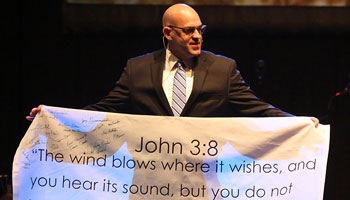The ELCA famously went to their 2009 Churchwide Assembly still technically holding onto traditional beliefs about sex, gender, and marriage. They came back having departed from even the appearance of holding to what had been believed and confessed. They split off, largely over sexual issues, and have been in radical decline ever since. Now another Churchwide Assembly has take a bite out of the conscience clause that allowed those who disagreed to remain in that church body. I have heard more than one ELCA person say that it would have been better if they had not gathered in 2009 to formalize what some on the edges of the ELCA had been doing.
In 1970 the United Methodists gathered for their General Conference and endorsed abortion rights after a 20-minute debate. This accompanied a shift from Biblical faith to revolutionary ideas, even promoting Marxism, and the famous campaign about open doors and open minds. That has now ended up with a divorce on the horizon and it is now simply figuring out how to divvy up the assets before the once United Methodists become the divided ones. Their history at their General Conference has been largely stymied in its pursuit of modernity only by a few conservatives and particularly by those Methodists from the former mission fields. When enough conservatives have departed, you can bet it will not take the liberals even five minutes at General Conference to overturn the church’s traditional sex teachings in print as well as in practice.
The Episcopal Church with its two house system might seem to slow down heresy but it has not been all that effective. It may have postponed some of the more radical stances from becoming official but it has not slowed or stopped the movement toward modernism within that denomination. In fact, the acts of their national gatherings have often been a source of both amusement for those outside the church body and irritation for those inside. A diocese or two has left the national body and they have spent much of the last several decades fighting not over truth but property. The votes to allow diversity often become votes not to tolerate dissent from the sacred cows of progressivism that become the church's new teaching and orthodoxy.
Even in Missouri, where conventions tend to toe the line of official teaching, we are not immune from aberrations. In 1989 we departed from historic faith and practice to sanction non-ordained presiding at the altar and preaching. Yes, it had spotty practice unofficially but here was our own church body officially rescinding part of the Augsburg Confession -- and we insisted all the time we never vote on doctrine! There are other items in our history and you can go back a lot further than the 1970s and the battle for the Bible to find examples of where the national reflection of our church's identity met and voted for something that really had no support or interest from the folks in the pews. Sometimes these are benign and other times they are nefarious.
It makes you wonder sometimes if these national gatherings are worth the time, expense, and energy we put into them when the result just may jettison the orthodox Christian faith from a church body's teaching and practice. Would it be better to have weird congregations and people on the fringes of the church body who we can all reject without having to muster enough votes and risk institutionalizing the heresy? That is also part of the problem. We have no solid and consistent discipline when it comes to those who depart from the faith.
One of Methodism’s premier theologians at their flagship seminary was tried
for heresy in 1904 for denying the orthodox faith. A jury of bishops acquitted him and there have been no other trials since. The history of the Episcopal bishops named Pike and Spong and now Love have shown that the only trials that work are those that fight against what had been believed and taught and is no longer. Even in Missouri we tend to fight more about by-laws than theological issues -- perhaps it is easier to muster the votes to procedurally arrive at an outcome you cannot achieve by deliberation of dogma. In any case, it makes me wonder if we should meet so often or ever -- since the track record is decidedly on the side of those who use such gatherings to compromise the truth rather than confess it.

1 comment:
"Even in Missouri, where conventions tend to toe the line of official teaching, we are not immune from aberrations."
Are there aberration examples you can give from the past twelve years?
Strangely, the 1989 Convention Proceedings only notes that Resolution 3-05B passed, but did not record the actual vote tally from delegates, half of whom were pastors. Also a motion for an amendment to not allow lay ministers to officiate the Lord's Supper was defeated, again without recording the actual vote tally.
Post a Comment